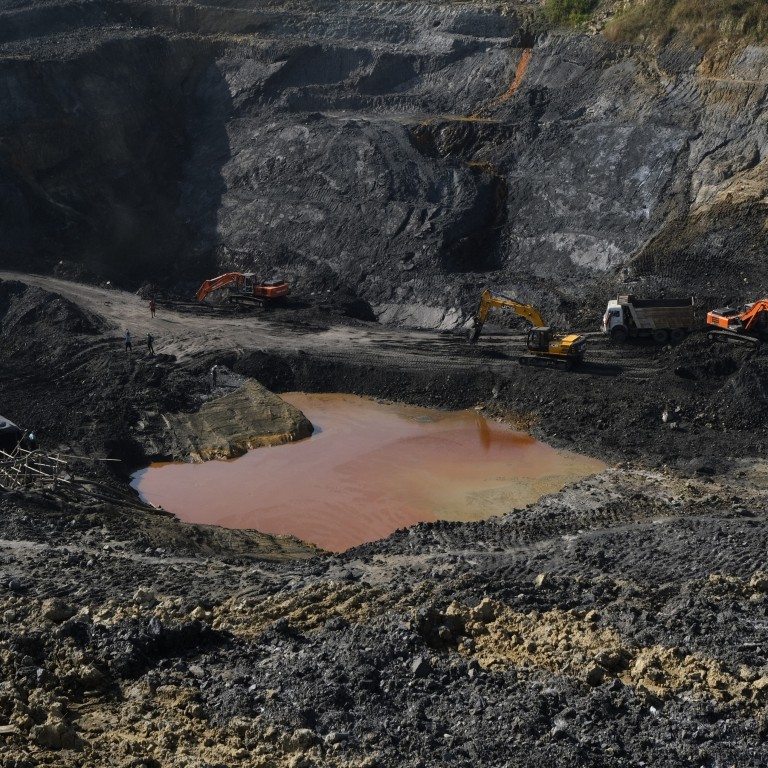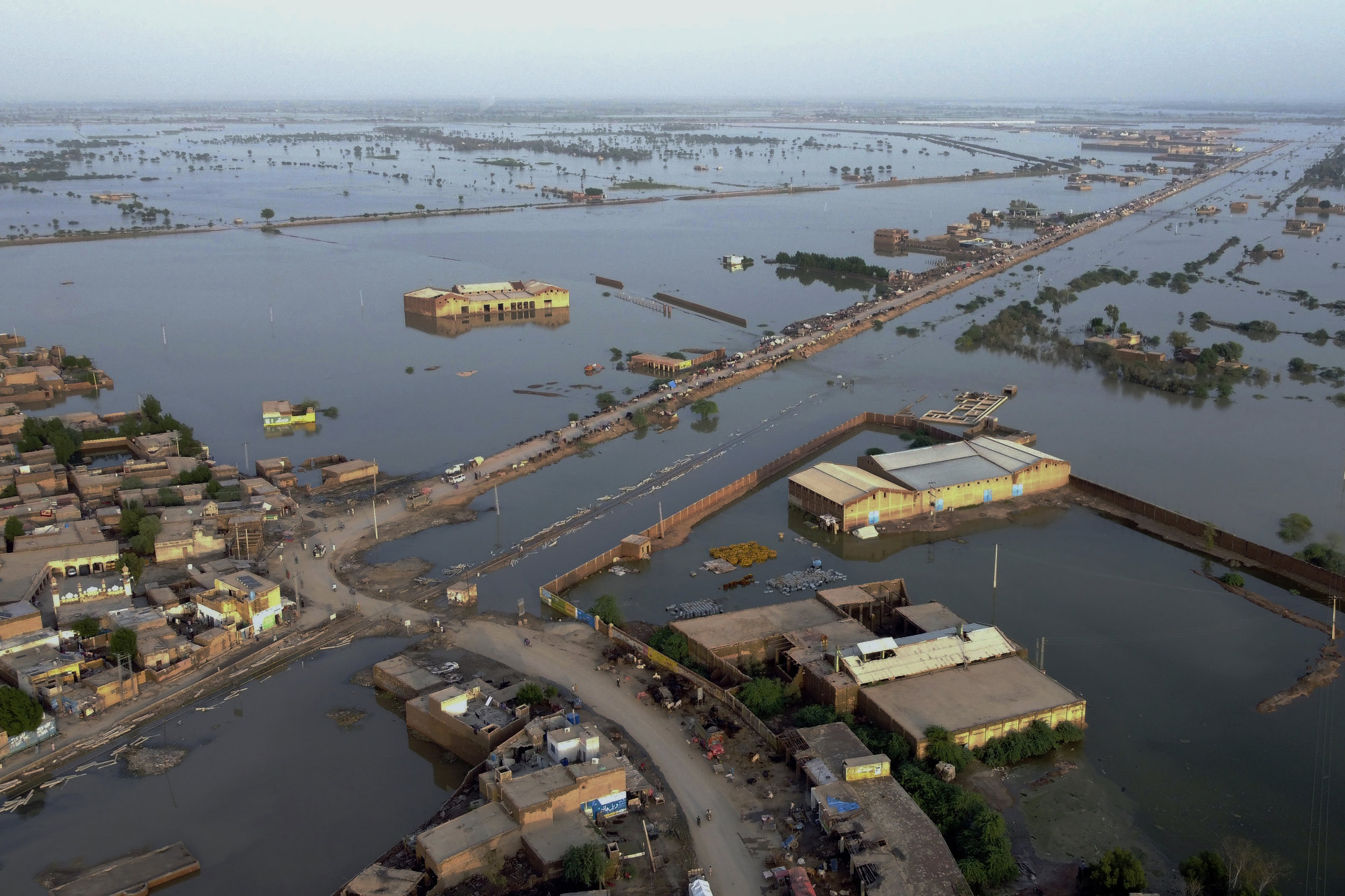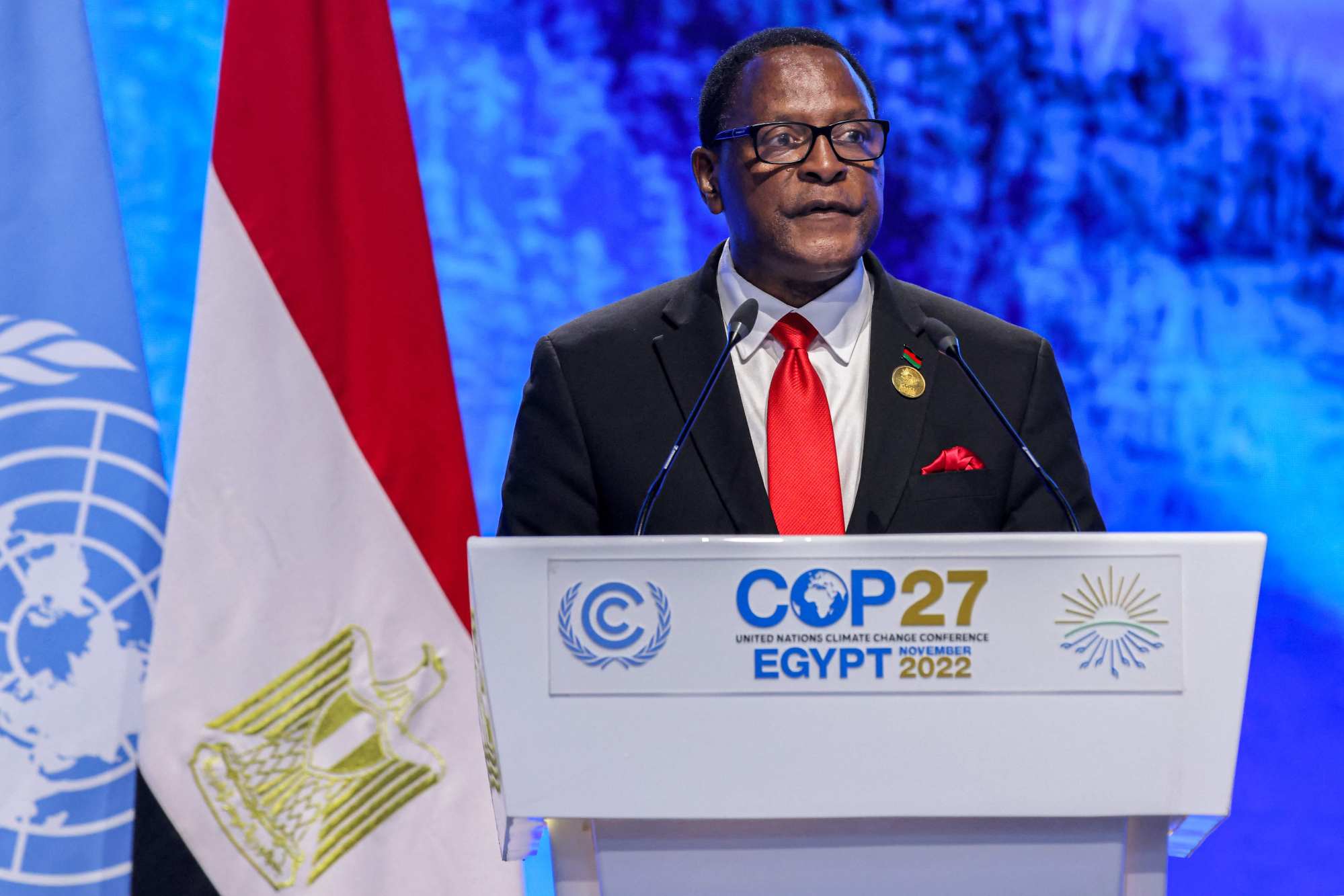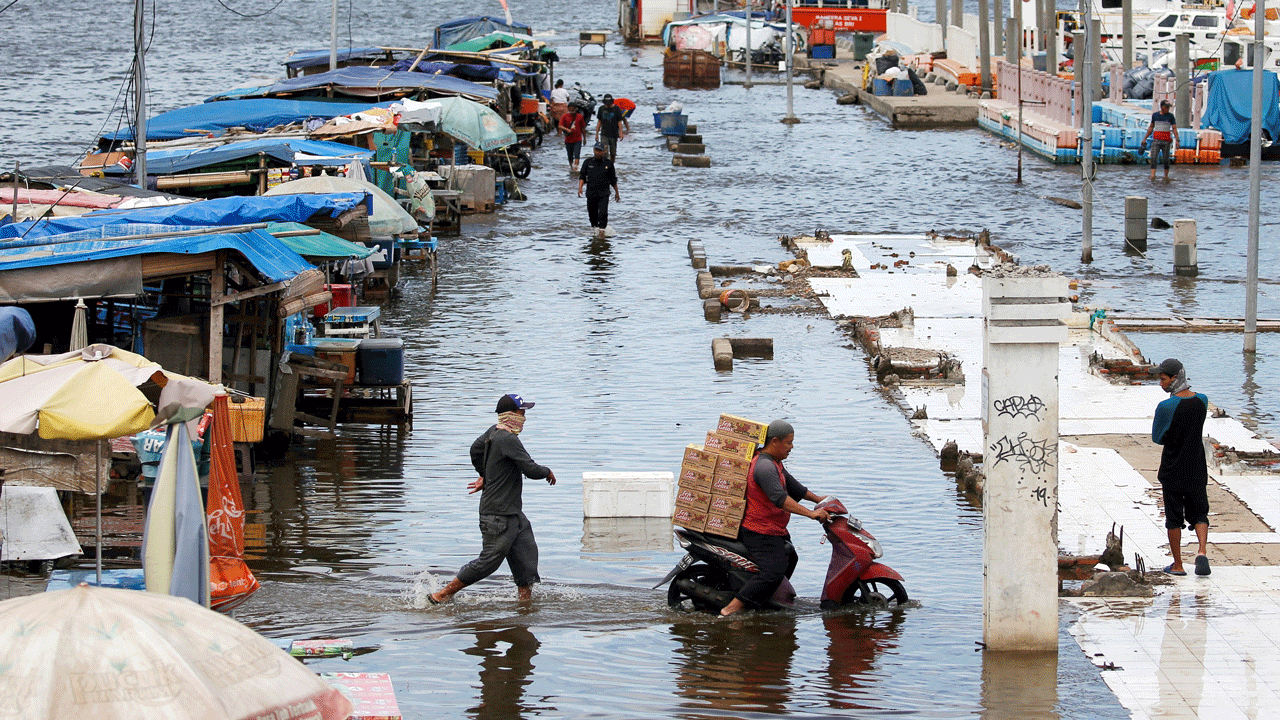
COP27: fossil fuel tax urged at UN summit amid pleas from poorer nations
- There are growing calls for fossil fuel firms to help pay for damage they have helped cause to the planet
- For first time, delegates are discussing demands by developing countries that richest, most polluting nations pay compensation
World leaders are making the case for tougher action to tackle global warming, as this year’s international climate talks in Egypt hear growing calls for fossil fuel companies to help pay for the damage they have helped cause to the planet.
United Nations chief Antonio Guterres has warned that humanity was on “a highway to climate hell with our foot on the accelerator”, urging countries to “cooperate or perish”.
He and leaders such as Barbados Prime Minister Mia Mottley said it was time to make fossil fuel companies contribute to funds which would provide vulnerable countries with financial aid for the climate-related losses they are suffering.
The idea of a windfall tax on carbon profits has gained traction in recent months amid sky-high earnings for oil and gas majors even as consumers struggle to pay the cost of heating their homes and filling their cars.
For the first time, delegates at this year’s UN climate conference, in the resort town of Sharm el-Sheikh, are discussing demands by developing nations that the richest, most polluting countries pay compensation for damage wreaked on them by climate change, which in climate negotiations is called “loss and damage”.
The US midterm elections were hanging over the talks on Tuesday, with many environmental campaigners worried that defeat for the Democrats could make it harder for President Joe Biden to pursue his ambitious climate agenda.
Also hanging over the conference was the fate of one of Egypt’s most prominent jailed pro-democracy activists, Alaa Abdel-Fattah, who has been imprisoned for most of the past decade.
His family stepped up pleas for world leaders to win his release after he stepped up a long-time hunger strike. Abdel-Fattah stopped even drinking water on Sunday, the first day of the conference, vowing he is willing to die if not released, his family says.
Egypt’s history of suppressing dissent has raised controversy over its hosting of the annual conference, known as COP27, with many international climate activists complaining that restrictions by the host are quieting civil society.
COP27: what’s on the UN climate talks agenda
On Tuesday, more world leaders took the stage, including Prime Minister Shahbaz Sharif of Pakistan, where summer floods caused at least US$40 billion in damage, killed more than 1,000 and displaced millions, the human side of a contentious issue about money, justice, blame and taking responsibility.
Extreme weather is worsening as the world warms, with a study calculating that human-caused climate change increased Pakistan’s flood-causing rain by up to 50 per cent.
Sharif called on rich countries to help fund the works needed to rebuild the country in a way that does not throw it into a “financial debt trap”.
Pakistan will continue its plan to move towards eliminating net emissions once it recovers from the devastating rains, he said in a speech at the climate talks.

“The priority of Pakistan has never been clearer – a goal on adaptation needs to be prioritised in terms of financing and timelines. Climate finance must be clearly defined, with new additional and sustained resources through a clear mechanism that meets the needs of developing countries with the speed and scale that’s required.”
After the speeches, conference delegates will delve into negotiations on a range of issues, including, for the first time, on compensation, known as loss and damage.
In a departure from the criticism that rich countries have so far endured from many developing nations’ leaders this year, the president of Malawi praised leaders present in Egypt for simply showing up.

“The temptation to abstain from COP this year was great,” President Lazarus Chakwera said. “It was also tempting for each of you to abstain from this COP because of the great and unprecedented economic hardships your citizens are suffering in your own nation. But you resisted this temptation and chose the path of courage.”
Still, Chakwera said that courage would also be tested by leaders’ ability to deliver “climate justice for the most vulnerable nations”.
Some of the strongest pleas for action came from leaders of poor nations that caused little of the pollution but often get a larger share of the weather-related damage.
Nigeria’s Environment Minister Mohammed Abdullahi called for wealthy nations to show “positive and affirmative” commitments to help countries hardest hit by climate change. “Our priority is to be aggressive when it comes to climate funding to mitigate the challenges of loss and damage,” he said.
COP27: UN chief warns world leaders against ‘collective suicide’ on climate
Leaders of poorer nations, joined by French President Emmanuel Macron, talked about the issue as one of justice and fairness.
“Our part of the world has to choose between life and death,’’ Tanzania President Samia Suluhu Hassan said.
“Africa should not pay for crimes they have not committed,” Central African Republic President Faustin Archange Touadera said, adding that rich nations were to blame for the climate problem.
Rich nations must compensate poor ones for climate damage, China tells COP27
“Climate change is directly threatening our people’s lives, health and future,” Kenyan President William K. Ruto said of the African continent, which he said is looking at US$50 billion a year in climate change damage by 2050.
Ruto said Kenya is choosing to not use many of its “dirty energy” resources even though it could help the poor nation financially and has instead opted for cleaner fuels.
Loss and damage are “our daily experience and the living nightmare of millions of Kenyans and hundreds of millions of Africans”, Ruto said.
Seychelles President Wavel John Charles Ramkalawan said that, like other islands, “our contribution in the destruction of the planet is minimal. Yet we suffer the most”. He called on wealthier countries to assist in repairing the damage.
‘We need to rebel’: climate change needs radical response, says XR activist
Meanwhile, the mother of the Egyptian activist Abdel-Fattah, Laila Soueif, called for world leaders, including British Prime Minister Rishi Sunak, to pressure the Egyptian government to free him.
“The Egyptian authorities are your friends and proteges not your adversaries. If Alaa dies you too will have blood on your hands,” she said in a video message on Facebook.
Abdel-Fattah’s sister Sanaa Seif is in Sharm el-Sheikh to raise the case of her brother and other jailed activists. “He is in prison because he is someone who makes people believe that the world can be a better place,” she said at a press conference on the sidelines of the climate gathering.
Urgent transformation required to avert climate disaster, says UN
Sanaa, a rights advocate, quoted Egyptian President Abdel-Fattah al-Sissi as telling France’s President Macron that the dissident’s health would be preserved.
“The statement really worried me. Are they force-feeding my brother right now?” Sanaa said. “We don’t know where he is, or if he is alive,” she added.
Britain’s Sunak said he raised Abdel-Fattah’s case in a meeting on Monday with the Egyptian president. Sunak said he would continue to “press for progress” in Abdel-Fattah’s case, according to Downing Street.
Additional reporting by Bloomberg, dpa


